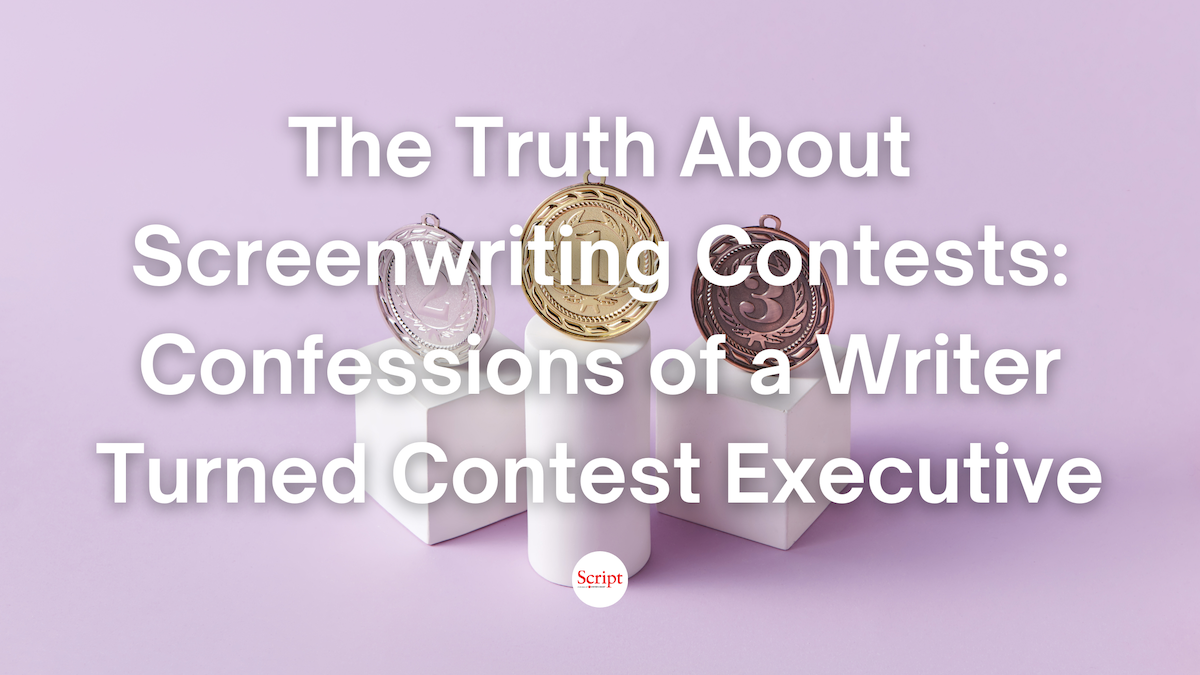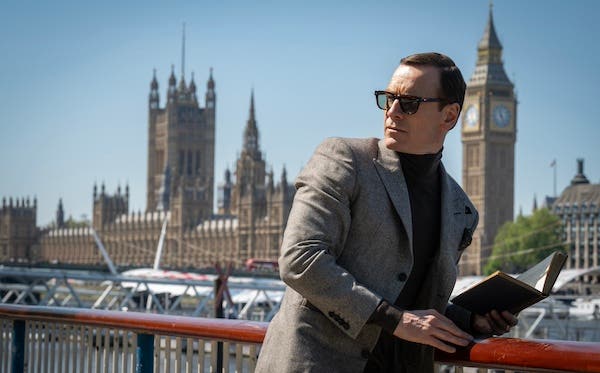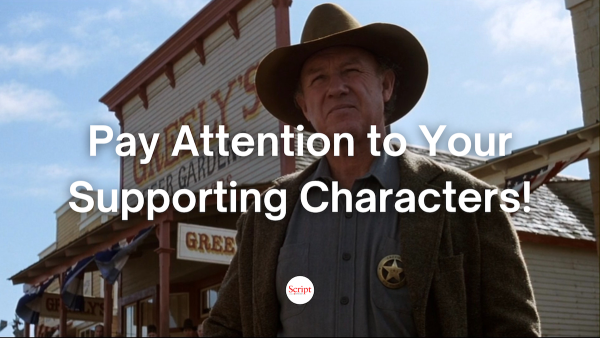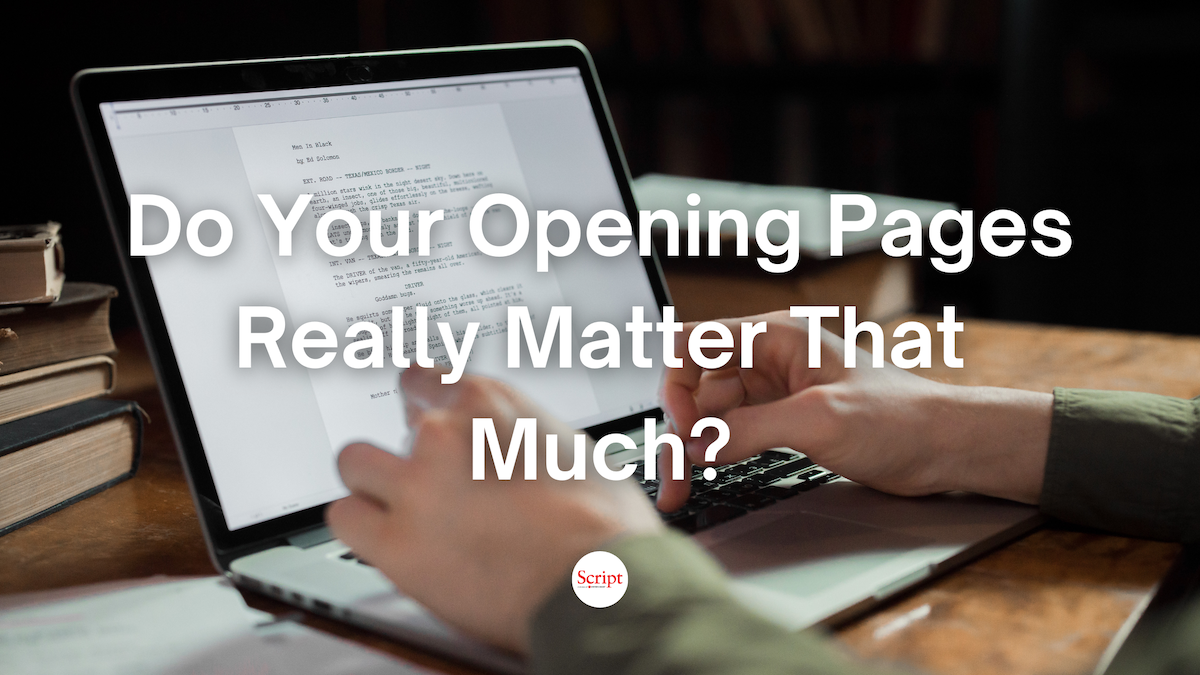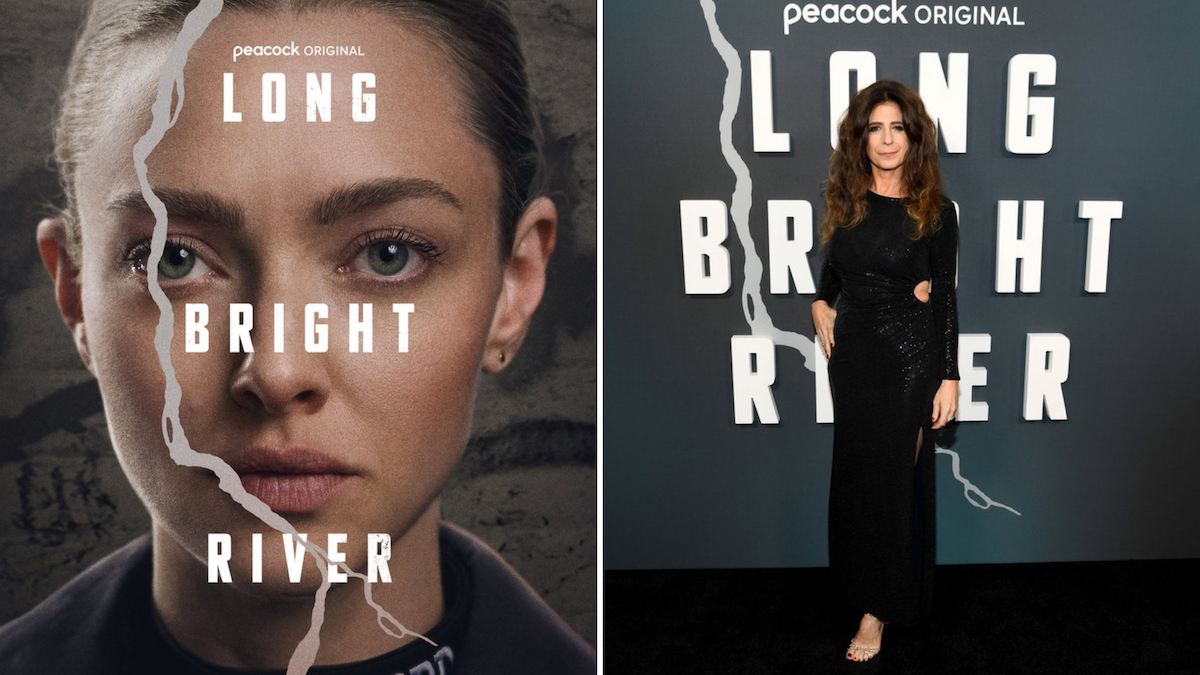WRITERS ON WRITING: Lucinda Coxon on Theatre, Breaking In and The Danish Girl
Writer of ‘The Danish Girl,’ Lucinda Coxon, shares her insights on being both a playwright and a screenwriter as well as how she navigates the challenges of the film industry.
Jeanne Veillette Bowerman is the Editor of Script Magazine and a screenwriter, having written the narrative feature adaptation as well as the limited series of the Pulitzer Prize-winning book, Slavery by Another Name, which was honored in the Top 25 Tracking Board Launch Pad Features Competition. Follow Jeanne on Twitter @jeannevb.
Every professional screenwriter began their journey will challenges and zig-zag paths, finally leading them to the joys, and sometimes the hell, of production. For Lucinda Coxon, that journey began in the theatres of London. But Lucinda's writing experience is far more than the average screenwriter – she's written original work, adapted books, written a limited series, as well as many plays. As I dug into research for this interview, I knew Lucinda was a writer I wanted to share with our readers, if only to demonstrate there are far more ways to break into film than just packing your bags and moving to Hollywood.
Her most recent film, The Danish Girl, examines the lives and the love of Danish artists, Lili Elbe and Gerda Wegener, as they navigate Lili's groundbreaking journey as a transgender pioneer.
JVB: A lot of writers stick to one style of writing, but there’s a great value in writing stories in different mediums. Before you became a playwright, did you always imagine a career in screenwriting, too? How difficult was the transition, and do you think being a playwright first made it harder or easier to write films?
Lucinda Coxon: Interesting question... I was a playwright first, and that was because I loved hanging out in theatres. I worked in my local rep throughout my teenage years, as a dresser and so on… anything they’d let me do, really. So I wanted a future in that environment, but I didn’t think of writing. I didn't know any writers, and saw very little new work. So I had to reject acting and directing before the penny finally dropped. I think having acted, even at a very junior level, is really important. You need to weigh a line in your mouth, not just in your mind. Experience writing plays certainly helped with The Danish Girl - it’s such an intimate and sustained character study.
JVB: As for the business side of switching back and forth from plays to films, did you find any resistance from film executives or did the industry welcome your exploration into both worlds?
LC: Oh, the film people secretly hate it when you go off to write plays! They pretend to be so happy for you, but they’re dying inside. And films are voracious bullies in terms of time. I’ve really struggled to protect my theatre writing time in the last couple of years. I aim to do better in 2016.
JVB: Every struggling writer out there wants to know how an accomplished writer like you was able to break in. Can you offer some insights into your journey from aspiring to produced writer?
LC: Well, I just wrote and wrote... little plays that were produced in rooms above pubs in London. And eventually, I got better at it. And got noticed. The key for me, actually, was a young BBC script editor called Martin Pope coming to see a very crazy little show I did. He got me a commission from the BBC that enabled me to write full time. He and I have grown up together - he’s now a producer and we’ve made two films together. The first film The Heart of Me was what led to my being attached on The Danish Girl. So there's a very direct connection from the tiny play to the shiny film. But it took 25 years.
JVB: As someone who is working on a limited series, I’m excited to get the opportunity to discuss your experience adapting The Crimson Petal and the White. What surprised you about exploring a story on a larger scale... the challenges and benefits?
LC: You know, the truth is that I really thought of Crimson as a very long film, because that’s what I knew how to do! But perhaps the most interesting difference was being able to give the four episodes very different personalities. We see Sugar, the heroine, moving through these very distinct landscapes, and very nearly different genres. That would be very hard to get away with in film. There's greater stylistic freedom.
JVB: I saw an interview where you discussed your play, What Are They Like? performed at National Theatre Connections 2013. I dug in deeper and watched a segment of the performance on YouTube. What a fascinating look at the parent/teen relationship! What have you gained as a writer by working with youth theatres?
LC: Happiness! Really - a sense of perspective and hope from dealing with such wonderful, uncynical people. Both the teachers/directors and the young people involved have such a level of commitment and ingenuity. I get a terrific amount out of it. It’s very important to me. Also, it was while working with young people at the National Theatre that I met Anthony Banks, now my go-to director in the UK.
JVB: Adaptation requires a special skill to interpret another writer’s work. What have you found to be the most challenging part of adapting a book? What do you wish you knew about that process before you wrote your first adaptation?
LC: The hardest part is being brutal about leaving things out. I still sometimes struggle with that, but I’m more realistic. I can let elements sit in the script and inform it for a while, but there’s a moment where you accept that something will never actually be in the film. It’s always a sad relief once you’ve hit ‘delete’.
JVB: Your new film with Focus Features, The Danish Girl, explores a world of self-discovery. What drew you to the project and what do you hope people will walk away feeling?
LC: Where to begin... The story of Lili and Gerda is an extraordinary piece of lost history, a unique love story and a fascinating meditation on the transformative nature of art. I couldn’t resist that mix. I hope people will leave the film questioning their own courage in terms of living with authenticity.
JVB: We could talk endlessly about craft, but I’m also curious about your outlook on surviving the emotional rollercoaster of being a writer. Judging by the projects you take on, you clearly love a challenge. Are you tougher on yourself than anyone else? How do you handle the setbacks that may happen when you take on tough subjects and projects?
LC: Resilience... so important. So hard to come by. Doesn’t get easier, so you need to accept it! I have had staggering disasters in my career. My first (and only original) screenplay was a labor of love over many years. We finally got it into production and filming collapsed after three weeks when the leading actor, Winona Ryder, became ill. The script is now owned forever by Chubb, the insurance company. That hurt for a long time.
And of course, there are the ordinary disasters also - the work that's never produced, or produced badly. And even if the work's a big success, some reviewer, somewhere, will always hate what you've done. But you just keep going. Do the next thing. The next thing. I’m very lucky that I have an amazing husband and daughter, so I don’t hang all my self worth on the work peg these days. But I certainly have done in the past. It’s horrible.
JVB: Do you enjoy being based in London as opposed to Los Angeles? Do you feel a writer’s location matters in terms of opportunities for success?
LC: Well, I’ve only ever worked out of in London… It has a pretty thriving theatre/film/TV culture, so I’m very happy there. And it’s not a one-industry town. I think I’d struggle with life in L.A. because of that. The most important thing is to work in a place where the alternating isolation and exposure of the job won’t get you down too badly.
JVB: If you could go back in time and talk to your younger self – the woman starting out as a writer or even the woman who had no idea she wanted to write for a living – what advice would you give her?
LC: DO take it seriously. DON'T take it personally.
- More articles by Jeanne Veillette Bowerman
- From Script to Screen: Mark L. Smith, Screenwriter of 'The Revenant'
- Line Between Good & Evil: Tim Talbott on Writing 'Standford Prison Experiment'
Get tips on writing historical films E.K. Prescott's webinar
The Historical Screenplay: Capturing the Reality of History
Jeanne Veillette Bowerman is a Senior Executive at Pipeline Media Group and Book Pipeline, Editor-in-Chief of Pipeline Artists, Director of Symposium—a year-round conference in the arts, co-host "Reckless Creatives" podcast, partner at Fringe Press, former Editor-in-Chief of Script magazine and a former Senior Editor at Writer's Digest. Recognized as one of the "Top 10 Most Influential Screenwriting Bloggers," her "Balls of Steel" column was selected as recommended reading by Universal Writers Program. A compilation of her articles is now available at The Writers Store—Balls of Steel: The Screenwriter's Mindset. She is also Co-Founder and moderator of X's weekly screenwriters’ chat, #Scriptchat, and wrote the narrative adaptation of the Pulitzer Prize-winning book, Slavery by Another Name, with its author, Douglas A. Blackmon, former senior national correspondent of The Wall Street Journal. More information can be found on her website. X: @jeannevb | IG/Threads: @jeannevb_ | BlueSky: @jeannevb.bsky.social


